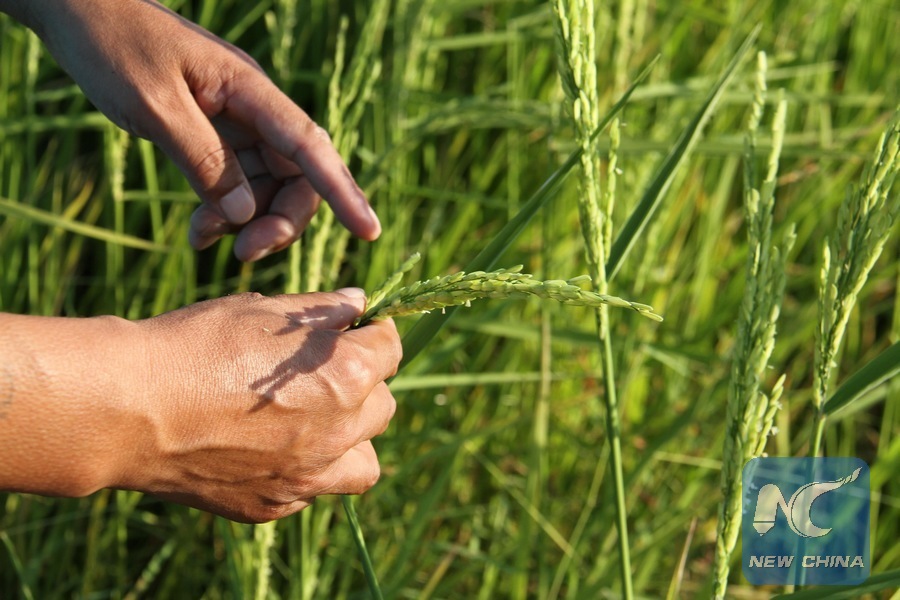
Photo taken on May 5, 2016 shows Chinese agriculture expert Liao Zuoquan checked rice plant in Kalimbeza Rice Research and Production Station in north-eastern Namibia. In April, 2015, 15 Chinese agricultural experts and technicians arrived in Namibia to conduct a two-year program of technology transfer and guidance. Tasked to help support the Southern African nation's agricultural development, they were separated into four regions to work with their Namibian counterparts in the fields of rice, gardening and husbandry. (Xinhua/Wu Changwei)
WINDHOEK, Jan. 31 (Xinhua) -- About 355 Namibian farmers and government staff have benefited from training with Chinese experts on skills from rice farming to compost making, said Namibia's agriculture permanent secretary Percy Misika.
Through a project under the Tripartite Agreement on South-South Cooperation (SSC) signed with the Food and Agriculture Organization (FAO) and China, which started in 2015 and will end this year, Chinese experts were assigned to work with locals to maximize skills and knowledge transfer.
Misika told Xinhua that the two-year cooperation has been excellent. The training range from rice cultivation, horticulture, compost making and virology to meat residue analysis.
"The introduction of special crops with well-developed roots such as Chinese long beans and pumpkins with stronger roots which have better water and fertilizer absorption ability will ensure the availability of vegetables during dry periods," he said.
Following the interventions of the Chinese experts, rice yields increased significantly from, according to him.
"This significant increase was also realized to the newly introduced method of mechanical transplanting of seedlings into the rice paddies. The new method not only helped to reduce labor costs but also shortened the planting time," he added.
Meanwhile, Misika said as for future cooperation, discussions are underway for Phase 2 of the SSC project between the tripartite parties.
"No specific areas have been decided upon yet as discussions are still in their early stages. It is however anticipated that Phase 2 will build on the excellent results obtained in Phase 1 particularly in rice production," he said.

